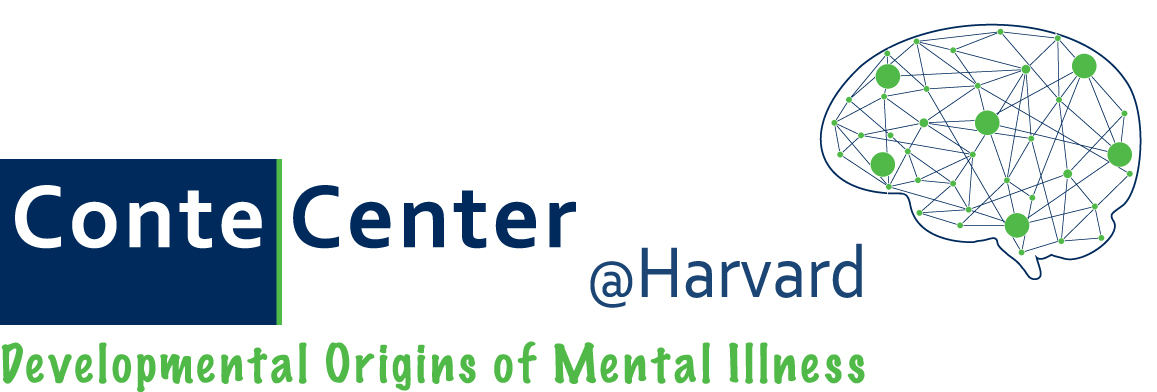Genomic Imprinting
Maternal vs. Paternal DNA. Our genomes consist of chromosomes inherited from our mothers (red DNA helix) and fathers (blue DNA helix). Parent-of-origin specific gene expression, known as “genomic imprinting,” is important for the development and function of neurons. {Courtesy of Catherine Dulac}
For most genes we inherit two copies, one from mom and one from dad. Often these two copies are expressed similarly—meaning just as much protein or RNA product is made from the mom’s copy as the dad’s copy. But some genes are expressed differently depending on whether they are maternally or paternally inherited.
This phenomenon, called genomic imprinting, is important in many biological processes, including brain development. In fact, entirely different neurological disorders can arise when one loses the maternal versus paternal copy of the same gene.
Until recently, fewer than 100 imprinted genes were known. In 2010, the Dulac Lab identified over 1300 candidate genes that undergo differential expression from either the maternal or the paternal allele in the mouse brain. Many of these appear to be related to brain development and plasticity. As part of the Conte Center, the lab is now gathering data on the “imprintome”—the full collection of imprinted genes—of PV-cells, a class of inhibitory neurons believed to be particularly vulnerable in mental illness. The lab is also investigating how the PV-cell imprintome is altered in mouse models of early life stress and mental illness.
Related Publications:
Sex-specific parent-of-origin allelic expression in the mouse brain.
Gregg C, Zhang J, Butler JE, Haig D, Dulac C.
Science. 2010 Aug 6;329(5992):682-5. doi: 10.1126/science.1190831. Epub 2010 Jul 8.
PMID: 20616234
High-resolution analysis of parent-of-origin allelic expression in the mouse brain.
Gregg C, Zhang J, Weissbourd B, Luo S, Schroth GP, Haig D, Dulac C.
Science. 2010 Aug 6;329(5992):643-8. doi: 10.1126/science.1190830. Epub 2010 Jul 8.
PMID: 20616232
Brain function and chromatin plasticity.
Dulac C.
Nature. 2010 Jun 10;465(7299):728-35. doi: 10.1038/nature09231. Review.
PMID: 20535202

